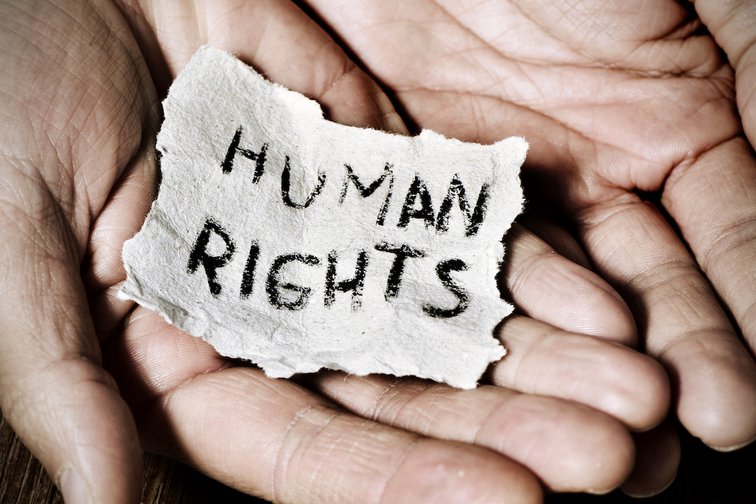
Multinationals and human rights abuses: are there any good news?
We have moved from soft law to the request of multinational corporations of a regulation of their obligations related to human rights. Is there a shift in the global market?

The challenge of defining limits and rules of the vast power of multinational corporations towards States and citizens has been a long-standing issue in global governance. This power is illustrated by Amnesty International: out of the top 100 economies, 51 are corporations, 49 are States. The relationship of business with human rights has been an object of international debate for years, but in the last months, we have witnessed developments moving from the soft law approach to the request coming from the corporations of a regulation of their obligations related to human rights. Is there a shift in the global market?
Protect, Respect, Remedy: these are three pillars of the voluntary uniform framework set by the UN Guiding Principles on Business and Human Rights (UNGPs) - endorsed by the UN Human Rights Council in 2011- which define and allocate the responsibilities in relation to human rights between the States and businesses.
The same existence of the UNGPs amounts to the acknowledgement of a gap in the International Human Rights Law in a globalised market. International Human Rights Law was created around the States as sole subjects and sole bearers of obligations under International Law, and as a tool to limit State’s power before the citizens. On the other side, International Law regulating economic development has grown disconnected from International Human Rights Law through tools to promote and protect investment (BITs) and multilateral commercial conventions.
In the context of the new international order characterised -amongst other factors- by the existence of a global market in which businesses become international actors, the UNGPs spell out that the protection of human rights needs to be re-oriented and placed at the centre to facilitate the acknowledgement of the role and liability of new potential abusers (businesses), as well as an extended State’s responsibility towards their protection.
We’ve got a newsletter for everyone
Whatever you’re interested in, there’s a free openDemocracy newsletter for you.
In the context of this acknowledgement, the main contribution of the UNGPs is that they design, in the reality of the global market, a standardized general framework arranging and assigning responsibilities to States and businesses by means of specific conducts, having succeeded to achieve the acceptance and support of this new actor, the corporations. In addition, the UNGPs have also influenced the initiative of national legislators.
In the market, the UNGPs have been followed by a great number of general and sectorial standards of accountability, prevention and mitigation of the negative social and environmental impacts of business: the Global Reporting Initiative, the International Finance Corporation Standards, the ISO 26000 on Corporate Responsibility, the OCDE Guidelines for Multinational Corporations (2011 review) and its Due Diligence Guidance for Responsible Business Conduct (2018), the Global Compact, or the EU Guides for Oil & Gas and for ICT sectors.
As for the initiative of the national Parliaments, France led the trend in 2017 with its Duty of Vigilance Law establishing the legal responsibility of parent companies for monitoring and addressing the operations of subsidiaries under their control or in its supply chain. Germany, Switzerland, Finland, Denmark, Norway, Switzerland, Thailand, Kenya are amongst the countries having announced similar initiatives. Other countries have opted for laws setting duties to monitor the respect of basic labour standards (prohibition of child and forced labour) in their supply chain (e.g. USA, UK, The Netherlands or Australia).
The UN working group avoided to perpetuate the debate around the source of old or new obligations of businesses under International Law and, instead, chose to design a voluntary, systematized, and uniform framework.
In my perspective, this achievement is a direct result of the pragmatic approach of the UN working group, author of the UNGPs under the leadership of Prof. Ruggie (the UN Special Representative on human rights and business): the working group avoided to perpetuate the debate around the source of old or new obligations of businesses under International Law and, instead, chose to design a voluntary, systematized and uniform framework based on:
- the acknowledgment of businesses’ responsibility to respect human rights as a ‘standard of conduct’,
- which is independent of the States’ ability or will in relation to their own international and national obligations,
- which is additional to the businesses’ duty to satisfy the obligations resulting from the national laws,
- which is translated in the specific behaviours: preventing, mitigating and remediating which, in turn, translate into a defined set of specific actions developed under foundational and operational principles, all of which,
- cannot be replaced by other behaviours (e.g. promotion or education, or solidarity).
It is also my view, however, that the main failure shown since 2011 is due to the enforceability of the businesses’ responsibility and the State’s ability to react to abuses committed by national corporations outside its territory. Although the most common critique to the prevention and mitigation standards set by UNGPs refers to their voluntarily nature, the global market has somehow integrated them as an extra-economic element influencing the access to finance and capital, and as a factor influencing the value of business in transactions.
The current health and climate emergencies have strengthened the weight of this factor in the global market to the point that businesses have joined the claim from civil organizations to national and supra-national governments to take a step further to the establishment of transparency and accountability obligations for corporations (in EU, Directive 2014/95/UE on non-financial information) and demand the introduction of legislations on the due diligence obligations of corporations related to human rights. In April 2020, a hundred investors -representing assets for 4.2 billon US$- made a joint call to governments to regulate businesses obligation of due diligence on human rights and the environment with the aim to promote and ensure harmonized standards in the market. Last September, twenty-six corporations made a joint statement in support of national laws within the EU establishing human rights due diligence obligations for business.
Nonetheless, there is an old gap in the third pillar of the UNGPs: the victim’s access to predictable and effective means of remedy in cases of abuse of human rights by business. In addition to obstacles resulting from a lack of financial resources and access to information to litigate, there are two major obstacles resulting from the legal international and national frameworks. First, the inherent complexity of international corporate structures jeopardizing the allocation of conducts and liabilities. Second, the limitation of extra-territorial jurisdiction of State courts. The EU Parliament's Report of February 2019 acknowledges these obstacles and their effects on the right to access predictable and effective remedies. Following the same path, the work OCDE and the UN Human Rights Council [1], as well as the on-going review works of several international treaties and conventions on investment and dispute resolution [2].
The EU Parliament’s Report on Access to Legal Remedies for Victims of Corporate Human Rights Abuses in Third Countries (February 2019) points out that, from the 35 cases covered by the report related to claims before EU national courts for abuse of human rights by EU bunisess committed in third countries, 12 cases were dismissed on the basis of lack of evidence or lack of jurisdiction; as for the other cases, 17 are still ongoing, 4 have been closed by means of an extra-judicial settlement, and only 2 have ended with a ruling in favor of the claimants.
Last April 2020 the EU Commission announced the introduction, by 2021, of an European legal framework for both the due diligence obligation of business to prevent and mitigate business impacts on human rights and environment and the access to remedy mechanisms.
There are no significant steps forward on the path initiated in 2014 to design an international convention on human rights and business providing a comprehensive framework from the International Law of Human Rights with answers to fill this gap [3].
Meanwhile, last April 2020 the EU Commission announced the introduction, by 2021, of an European legal framework for both the due diligence obligation of business to prevent and mitigate business impacts on human rights and environment, and the access to remedy mechanisms allowing the enforceability of the parent company’s responsibility to monitor the behaviours of its affiliated companies and supply chain in third countries. This initiative appears as an opportunity for EU to lead a key step forward to achieving human rights protection by spelling the duties behind the rights and the jurisdiction behind the responsibilities. The EU has taken an important step beyond its approach through obligations of non-financial information disclosure for business and the protection of human rights in specific sectors (e.g. wood and conflict minerals).
The EU Parliament has started to work, and last September published its report with recommendations and a proposal for a Directive aiming at preventing and mitigating adverse effects on human rights, environment, and governance, and to ensure that businesses can be held accountable for these impacts and that anyone who has suffered harm can effectively exercise their right to obtain a remedy. The EU Parliament’s report proposes the Directive to cover all undertakings governed by the Law of a Member state or established in its territory; a harmonised regime of the due diligence obligation extended to subsidiaries and supply chain operating outside the UE; a specific penalty system articulated through Member States; and the adaptation of the European rules on applicable law and jurisdiction to ensure the applicability of the national laws resulting from the Directive and to overcome the limits of extraterritorial jurisdiction, in claims of human rights violations committed in third countries by businesses.
The case against TOTAL, the energy and hydrocarbon sector multinational, illustrates the importance of this development: the French Duty of Vigilance Law has allowed a claim before the French Courts for the adverse impacts of the TOTAL oil project in Uganda on the rights of the local population – dispossession of land, displacement of thousands of people, restriction of access to agricultural land - and to biodiversity. The NGOs leading this case base the claims on the breach of the vigilance duty of the French parent company on the behavior and activities of its Uganda subsidiary.
The route is long and complex, but hopefully, the course taken by the European Union will be the compass for the rest of the countries.
****
[1] UN HRC Report improving remedy and accountability (Business and HR) June 2020, Report EU Parliament on Access to Remedy (Business and Human Rights) Febr 2019, OECD Consultation Paper on business responsibilities and investment treaties Jan 2020.
[2] The Hague Rules on Business and Human Rights Arbitration; OHCHR Accountability and Remedy Project III; OCED consultation on business responsibilities in investment treaties; Modernisation of ECT; ICC Arbitration and ADR Commission Report on Resolving Climate Change Related Disputes through Arbitration and ADR
[3] In 2014, the UN Human Rights Council adopted resolution 26/9 creating the Intergovernmental Working Group to elaborate “an international legally binding instrument on transnational corporations and other business enterprises with respect to human rights”..
Read more
Get our weekly email




Comments
We encourage anyone to comment, please consult the oD commenting guidelines if you have any questions.